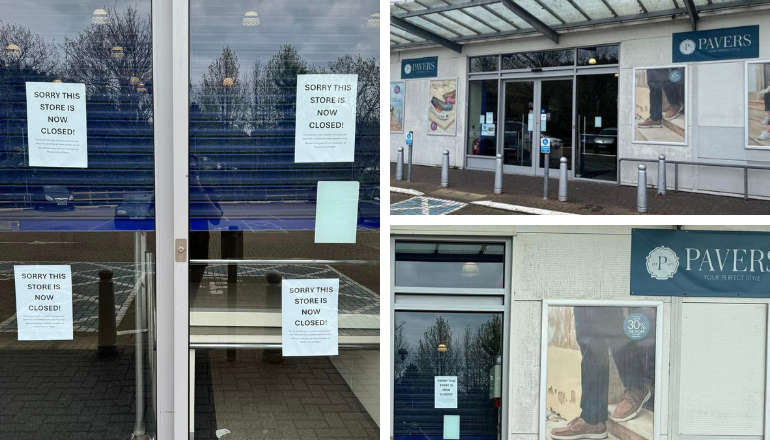
The Isle of Wight NHS Trust’s Speech and Language Therapy team are sharing helpful guidance on communicating with people with dementia and feeding tips for those with swallowing difficulties.
Dementia, which effects over 670,000 people in England, is an umbrella term used to describe a range of symptoms associated with damage to the brain.
Dementia may affect a person's ability to speak clearly and fluently because of changes to the muscles that allow us to form sounds and some people might have difficulty understanding and using words and sentences, this is called dysphasia.
The initiative by the trust is to mark part of Dementia Action Week this week (17-23).
Stephanie Brett, Speech and Language Therapist, said:
“If someone you care about has dementia, then adapting how you communicate will have many benefits, including being able to better understand the needs of the person you care about.
"A few small changes can make a big difference. You could try to use short, clear sentences, sticking to one subject at a time and repeating back what the person has said to you to double check its meaning with them."
Some people with dementia also struggle with swallowing difficulties. Difficulties in swallowing may arise from a number of medical causes. In dementia they may be caused by damage to parts of the brain that co-ordinate the muscles responsible for swallowing.
Speech and language therapists assess problems with swallowing and communication and they can offer support through various exercises such as repeating words, naming items in pictures and showing patients techniques that strengthen the muscles of the mouth, dietary advice and changes to medication.
Katherine Willing, Speech and Language Therapist, said:
"Some people also have difficulties with swallowing which impact on people’s ability to socialise and can lead to physical problems such as choking and food going into the lungs.
"We can assess the extent of these difficulties using a variety of swallow tests, and there are minor changes that families and carers can make to help improve eating and swallowing for someone with dysphagia."
Amy Cogan, Speech and Language Therapist, added:
"Providing support and advice to families and carers is extremely rewarding and even the smallest change can make a huge difference.
"In light of this we have created these short videos to show families and carers some simple methods to facilitate better communication and to make mealtimes safer and more enjoyable."
The videos produced by the Speech and Language Therapy Team are available on the IOW NHS Trust website.

 Isle Of Wight Council To Move To Committee System In 2025
Isle Of Wight Council To Move To Committee System In 2025
 Highway Improvement At Church Litten Next Week
Highway Improvement At Church Litten Next Week
 Man Arrested After Being Caught During Act Of Self-Gratification In Newport
Man Arrested After Being Caught During Act Of Self-Gratification In Newport
 May Day Bank Holiday Recycling And Waste Collection Information
May Day Bank Holiday Recycling And Waste Collection Information
 Isle Of Wight Ambulance Service Star Louise Awarded King’s Ambulance Medal
Isle Of Wight Ambulance Service Star Louise Awarded King’s Ambulance Medal
 Stranded RIB Towed To Safety By Cowes Lifeboat
Stranded RIB Towed To Safety By Cowes Lifeboat
 Major Highway Works Taking Place Across Isle Of Wight This Month
Major Highway Works Taking Place Across Isle Of Wight This Month
 Three Men Arrested On Suspicion Of 'Attempting To Take Child'
Three Men Arrested On Suspicion Of 'Attempting To Take Child'
 Wildheart Animal Sanctuary Rescue To Bring First Bears To Isle Of Wight For 30 Years
Wildheart Animal Sanctuary Rescue To Bring First Bears To Isle Of Wight For 30 Years
 One Week To Go Until Isle Of Wight Walking Festival 25th Anniversary
One Week To Go Until Isle Of Wight Walking Festival 25th Anniversary
 Apply Now For Grant Funding To Help Strengthen Family Support On Isle Of Wight
Apply Now For Grant Funding To Help Strengthen Family Support On Isle Of Wight
 Pavers Shoes The Latest Newport Business To Close Its Doors
Pavers Shoes The Latest Newport Business To Close Its Doors
 Isle Of Wight Libraries Celebrate World Book Night
Isle Of Wight Libraries Celebrate World Book Night
 Traffic Advice Issued For Walk The Wight
Traffic Advice Issued For Walk The Wight
 Hovertravel's Hoverbus Showcases All-New Look
Hovertravel's Hoverbus Showcases All-New Look
 Bear Grylls Pays Homage To Young Islander Ginny Following Ultimate Scouting Award
Bear Grylls Pays Homage To Young Islander Ginny Following Ultimate Scouting Award
 Southern Vectis To Open May Community Fund For Worthy Causes Across Isle Of Wight
Southern Vectis To Open May Community Fund For Worthy Causes Across Isle Of Wight
 Terrorism Plot Teen From Isle Of Wight Further Sentenced
Terrorism Plot Teen From Isle Of Wight Further Sentenced
 Ryde's Waterside Pool Secures £254,000 Of Government Refurbishment Funding
Ryde's Waterside Pool Secures £254,000 Of Government Refurbishment Funding
 Flood Warnings Eased But More 'Unsettled' Weather On The Way
Flood Warnings Eased But More 'Unsettled' Weather On The Way


